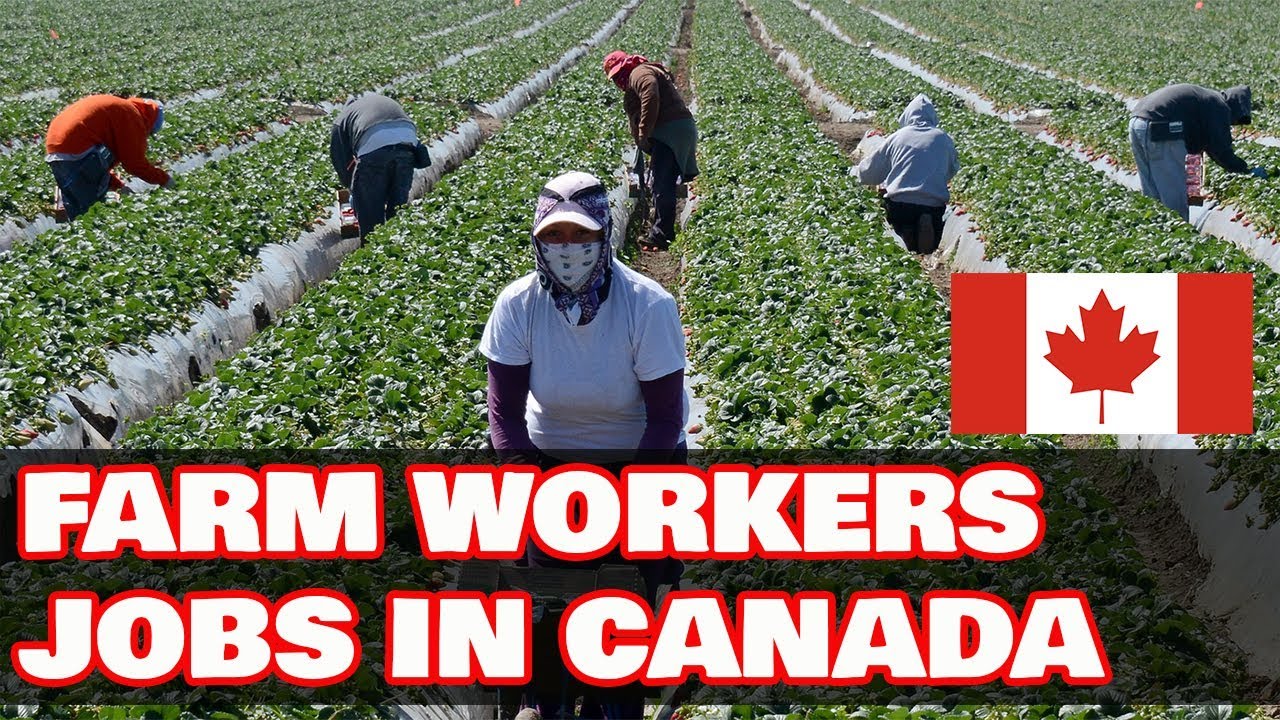Canada’s sprawling farmlands, cutting-edge agricultural technologies, and commitment to sustainable practices make it a global leader in agriculture. For international workers, the prospect of securing agriculture jobs in Canada with visa sponsorship is more than just a job opportunity—it’s a chance to build a fulfilling career, immerse in a vibrant culture, and potentially settle in one of the world’s most welcoming countries. The agriculture sector, a cornerstone of Canada’s economy, employs over 2.1 million people and contributes significantly to food security and global exports. Yet, with labor shortages and an aging workforce, Canadian farms are increasingly turning to foreign talent, offering visa sponsorship to fill critical roles.
This article dives deep into the world of agriculture jobs in Canada, offering practical insights, expert advice, and real-world examples to guide you. Whether you’re a seasoned farm worker or a newcomer eager to break into the industry, you’ll find actionable steps, updated data, and a fresh perspective on how to navigate this dynamic sector. From fruit picking to farm management, we’ll explore the opportunities, visa processes, and strategies to thrive in Canada’s agricultural landscape.
Why Agriculture Jobs in Canada Are a Golden Opportunity
Canada’s agriculture sector is vast, diverse, and in high demand. In 2024, the industry faced a labor shortage, with an estimated 269,000 jobs available in farming alone. The Canadian government has responded by prioritizing foreign workers through programs like the Temporary Foreign Worker Program (TFWP) and the Seasonal Agricultural Worker Program (SAWP), which facilitate visa sponsorship for roles ranging from general farm labor to specialized positions like agronomy and livestock management.
The Appeal of Agricultural Work
-
High Demand, Low Barriers: Many roles, such as fruit picking or general farm work, require no formal education, making them accessible to a wide range of candidates.
-
Competitive Wages: Farm workers earn an average of $15–$20 per hour, with some roles offering up to $29,256 annually. Benefits like accommodation and transportation are often included.
-
Pathways to Permanent Residency: Programs like the Agri-Food Immigration Pilot provide a route to permanent residency for non-seasonal workers, offering long-term stability.
-
Cultural and Skill Development: Working on Canadian farms exposes you to advanced farming techniques, diverse teams, and the chance to embrace Canadian culture.
As someone who has explored global job markets, I’ve seen how agriculture jobs in Canada stand out for their inclusivity and opportunity. Unlike tech or healthcare, which often demand specialized degrees, farming welcomes hard work and adaptability. I recall speaking with a friend from the Philippines who started as a fruit picker in British Columbia. Within three years, he transitioned to a supervisory role and applied for permanent residency. His story underscores the potential for growth in this sector, even for those starting at entry-level positions.
Types of Agriculture Jobs in Canada with Visa Sponsorship
The agriculture sector in Canada offers a wide array of roles, catering to different skill sets and career goals. Below, we explore the most in-demand positions, their responsibilities, and what makes them appealing for international workers.
1. General Farm Workers
What They Do: General farm workers are the backbone of Canadian farms, handling tasks like planting, cultivating, and harvesting crops, as well as tending to livestock. These roles involve physical labor and adaptability to varying weather conditions.
Why It’s Great: No formal education or prior experience is required, and employers often provide on-the-job training. Companies like Parrish & Heimbecker (P&H), with over 1,500 employees, actively sponsor visas for these roles.
Real Example: Maria, a worker from Mexico, joined a farm in Ontario through the SAWP. She started as a general farm worker, planting and harvesting vegetables. Her employer provided housing and a competitive wage of $16 per hour. After two seasons, she applied for the Agri-Food Immigration Pilot, aiming for permanent residency.
Salary: $15–$18 per hour.
2. Fruit and Vegetable Pickers
What They Do: Fruit and vegetable pickers harvest crops like apples, blueberries, and tomatoes. This seasonal work is labor-intensive but highly rewarding, with many employers offering visa sponsorship.
Why It’s Great: These jobs are in high demand, especially in provinces like British Columbia and Ontario. Workers often receive bonuses for productivity, and the role requires minimal training.
Real Example: Sanjay, an Indian worker, joined a berry farm in Abbotsford, BC, through a recruitment agency. He earned $17 per hour and received free accommodation. The fast-paced environment taught him teamwork and time management, skills he later used to secure a greenhouse worker position.
Salary: $14–$17 per hour.
3. Agricultural Equipment Operators
What They Do: Operators manage and maintain farm machinery, such as tractors and harvesters. They perform tasks like plowing fields, planting seeds, and applying fertilizers.
Why It’s Great: Experience with machinery is a plus, but many employers train workers. Companies like John Deere dealerships sponsor visas for skilled operators, offering opportunities to work with cutting-edge technology.
Carlos, a mechanic from Guatemala, landed a job at a John Deere dealership in Alberta. His prior experience with diesel engines helped him secure the role, which came with a $22 per hour wage and visa sponsorship. He now trains new operators, a testament to the growth potential in this field.
Salary: $18–$25 per hour.
4. Livestock Technicians
What They Do: Livestock technicians care for animals, ensuring their health and well-being. Duties include feeding, monitoring health, and assisting with births, particularly in dairy, poultry, and beef farming.
Why It’s Great: These roles appeal to those passionate about animal care. Employers like Sunrise Farms in British Columbia sponsor visas for livestock technicians, offering stable, year-round work.
Real Example: Aisha, a veterinary assistant from Nigeria, joined a dairy farm in Quebec. Her diploma in animal health gave her an edge, and she earned $20 per hour. The farm’s supportive environment helped her adapt to Canadian farming practices, and she’s now pursuing permanent residency.
Salary: $16–$22 per hour.
5. Greenhouse Workers
What They Do: Greenhouse workers grow and maintain plants, flowers, and vegetables in controlled environments. Tasks include planting, pruning, and monitoring irrigation systems.
Why It’s Great: Greenhouses offer year-round employment, unlike seasonal field work. Companies like NatureFresh Farms in Ontario frequently hire foreign workers, providing visa sponsorship and training.
Real Example: Linh, a Vietnamese worker, started at NatureFresh Farms as a greenhouse worker. She earned $15.50 per hour and learned advanced hydroponic techniques. Her employer supported her visa renewal, and she’s now training to become a greenhouse supervisor.
Salary: $15–$18 per hour.
6. Agricultural Supervisors and Managers
What They Do: Supervisors oversee farm operations, manage workers, and ensure compliance with safety and environmental regulations. Managers handle budgets and strategic planning.
Why It’s Great: These roles suit experienced workers with leadership skills. They offer higher wages and a clear path to permanent residency through programs like the Provincial Nominee Program (PNP).
Real Example: Raj, an agronomist from India, joined a Saskatchewan farm as a supervisor. His degree in agriculture and five years of experience earned him $30 per hour and visa sponsorship. He’s now a farm manager, overseeing 20 workers and applying for permanent residency.
Salary: $25–$40 per hour.
Visa Sponsorship Programs for Agricultural Workers
Securing a job with visa sponsorship requires understanding Canada’s immigration programs. The following programs are designed to bring foreign workers into the agriculture sector, each with specific eligibility criteria and benefits.
1. Temporary Foreign Worker Program (TFWP)
The TFWP allows employers to hire foreign workers when no Canadian candidates are available. For agriculture, the Seasonal Agricultural Worker Program (SAWP) is a key stream, targeting workers from countries like Mexico, Jamaica, and the Caribbean for seasonal roles (up to eight months).
How It Works:
-
Employers apply for a Labour Market Impact Assessment (LMIA) to prove the need for foreign workers.
-
Once approved, workers receive a job offer and apply for a work permit.
-
Benefits include housing, transportation, and health insurance for seasonal workers.
Eligibility:
-
A valid job offer from a Canadian employer.
-
Physical fitness for labor-intensive tasks.
-
Basic English or French skills (preferred but not mandatory).
Expert Tip: “Always verify the employer’s LMIA status before applying,” advises Immigration Consultant Sarah Patel. “A positive LMIA is your ticket to a legal work permit.”
2. Agri-Food Immigration Pilot
Launched to address labor shortages in non-seasonal agriculture, this pilot offers a pathway to permanent residency for workers in roles like livestock technicians and greenhouse workers.
How It Works:
-
Workers need 12 months of full-time, non-seasonal work experience in Canada.
-
A job offer in an eligible occupation is required.
-
Applications are processed through Immigration, Refugees and Citizenship Canada (IRCC).
Eligibility:
-
Canadian Language Benchmark (CLB) level 4 in English or French.
-
High school diploma or equivalent.
-
A valid, full-time job offer in an eligible industry.
Real Example: Juan, a Colombian farm worker, joined a poultry farm in Manitoba. After 18 months, he applied for the Agri-Food Pilot, leveraging his experience and a job offer from his employer. He’s now a permanent resident, planning to bring his family to Canada.
3. Provincial Nominee Program (PNP)
Some provinces, like British Columbia and Saskatchewan, offer PNPs tailored to agriculture workers. These programs prioritize candidates with job offers in high-demand sectors, often leading to permanent residency.
How It Works:
-
Employers nominate workers based on regional labor needs.
-
Workers apply through the province’s immigration stream.
-
Successful candidates receive an invitation to apply for permanent residency.
Eligibility:
-
A job offer in an eligible occupation.
-
Relevant work experience (varies by province).
-
Language proficiency (CLB 4 or higher).
Expert Tip: “Research province-specific PNPs,” suggests John Lee, an immigration lawyer. “Saskatchewan’s agriculture-focused streams are particularly welcoming to foreign workers.”
How to Find Agriculture Jobs with Visa Sponsorship
Landing a job with visa sponsorship requires strategy and persistence. Here’s a step-by-step guide to streamline your search, backed by expert advice and real-world insights.
Step 1: Research Job Opportunities
Start by exploring platforms that list agriculture jobs with visa sponsorship:
-
Job Bank Canada: The government’s official job board, with filters for visa-sponsored roles.
-
Indeed Canada: Lists thousands of farm jobs, with over 1,340 visa-sponsored positions as of January 2025.
-
Parrish & Heimbecker Careers: Select “Yes” for visa sponsorship when applying.
-
LMIAjobs.co.uk: A database of verified LMIA-approved jobs.
Personal Insight: I recommend setting up job alerts on Indeed and Job Bank. When I helped a cousin search for farm jobs, daily alerts kept us ahead of new postings, and we found a fruit-picking role within two weeks.
Step 2: Tailor Your Application
Craft a resume and cover letter that highlight your relevant skills, even if minimal. Emphasize physical stamina, teamwork, and any agricultural experience.
Expert Tip: “Canadian employers value adaptability,” says HR consultant Maria Gomez. “If you’ve worked in gardening or manual labor, mention it—it shows you can handle farm work.”
Real Example: Priya, a worker from Sri Lanka, had no farming experience but highlighted her gardening hobby and physical fitness in her resume. She landed a greenhouse job in Ontario, with her employer praising her enthusiasm.
Step 3: Connect with Recruitment Agencies
Agencies like Sewa Enterprise Ltd. specialize in placing international workers in Canadian farms, handling LMIA applications and visa processes.
Expert Tip: “Choose agencies with a proven track record,” advises Patel. “Check reviews and ensure they’re registered with the Canadian government.”
Step 4: Prepare for Interviews
Interviews for farm jobs focus on your work ethic, physical capability, and willingness to learn. Practice answering questions about teamwork, handling machinery, and adapting to outdoor work.
Real Example: Ahmed, a worker from Egypt, prepared for his interview by researching the farm’s crops and machinery. His knowledge impressed the employer, securing a $18 per hour equipment operator role.
Step 5: Navigate the Visa Process
Once you receive a job offer, your employer will guide you through the LMIA and work permit application. Ensure all documents, including your passport and medical exams, are up to date.
Expert Tip: “Submit accurate documents to avoid delays,” says Lee. “IRCC processes work permits in 4–5 months, so apply early.”
Top Provinces for Agriculture Jobs
Canada’s agriculture jobs are concentrated in specific provinces, each offering unique opportunities and lifestyles.
1. British Columbia
-
Key Roles: Fruit pickers, greenhouse workers, livestock technicians.
-
Why It’s Great: BC’s Fraser Valley is a hub for berry and vegetable farming, with companies like Sunrise Farms offering visa sponsorship.
-
Salary Range: $15–$22 per hour.
-
Lifestyle: Scenic landscapes and mild climates make BC ideal for outdoor enthusiasts.
2. Ontario
-
Key Roles: Greenhouse workers, general farm workers, agricultural supervisors.
-
Why It’s Great: Ontario’s greenhouse industry, led by NatureFresh Farms, hires thousands of foreign workers annually.
-
Salary Range: $15–$25 per hour.
-
Lifestyle: Proximity to urban centers like Toronto offers a blend of rural and city life.
3. Alberta
-
Key Roles: Livestock technicians, equipment operators, farm managers.
-
Why It’s Great: Alberta’s cattle industry drives demand for skilled workers, with John Deere dealerships sponsoring visas.
-
Salary Range: $18–$30 per hour.
-
Lifestyle: Wide-open prairies and a strong economy attract workers seeking stability.
4. Saskatchewan
-
Key Roles: Agronomists, farm supervisors, general farm workers.
-
Why It’s Great: Saskatchewan’s grain and canola farms offer year-round roles, with PNPs favoring agricultural workers.
-
Salary Range: $16–$35 per hour.
-
Lifestyle: Affordable living and tight-knit communities appeal to families.
Challenges and How to Overcome Them
While agriculture jobs offer immense opportunities, they come with challenges. Here’s how to tackle them:
Challenge 1: Physical Demands
Farm work is labor-intensive, often requiring long hours in harsh weather.
Solution: Build stamina through regular exercise before arriving. Maria, the Mexican worker, started jogging daily to prepare for her fruit-picking job, which helped her endure 10-hour shifts.
Challenge 2: Language Barriers
Basic English or French is preferred but not always required. Communication can still be a hurdle.
Solution: Take online language courses or use apps like Duolingo. Sanjay, the Indian worker, practiced English with coworkers, improving his skills within months.
Challenge 3: Visa Processing Delays
LMIA and work permit applications can take 4–5 months.
Solution: Work closely with your employer and consider hiring an immigration consultant. Juan’s employer provided a checklist, ensuring his application was error-free.
Expert Advice for Success
To stand out in Canada’s agriculture sector, follow these tips from industry experts:
-
Network Actively: “Attend job fairs and connect with farmers on LinkedIn,” says Gomez. “Personal connections often lead to job offers.”
-
Learn Modern Techniques: “Familiarize yourself with precision agriculture tools,” advises agronomist Dr. Emily Chen. “Farms value tech-savvy workers.”
-
Stay Committed: “Show reliability,” says Patel. “Employers prioritize workers who return for multiple seasons, increasing your chances of permanent residency.”
Frequently Asked Questions
Q: Do I need prior experience for agriculture jobs in Canada?
A: No, many roles like fruit picking and general farm work require no experience. Employers provide training, though relevant skills like gardening or machinery operation are a plus.
Q: How much can I earn as a farm worker in Canada?
A: Wages range from $14–$40 per hour, depending on the role. General farm workers earn $15–$18, while supervisors can earn up to $40.
Q: Can I apply for permanent residency as a farm worker?
A: Yes, through the Agri-Food Immigration Pilot or PNPs, workers with 12 months of non-seasonal experience can apply for permanent residency.
Q: What documents do I need for a work permit?
A: You’ll need a valid passport, job offer letter, positive LMIA, and proof of medical exams (if required). Consult IRCC’s website for a full list.
Q: Are there age restrictions for farm jobs?
A: No, there’s no age limit for most roles, though physical fitness is essential.
Why Agriculture Jobs Are More Than Just Work
Beyond the paycheck, agriculture jobs in Canada offer a chance to contribute to global food security, learn sustainable practices, and build a life in a country that values diversity. The sector’s reliance on foreign workers isn’t just about filling gaps—it’s about fostering cultural exchange and innovation. As Dr. Chen notes, “Foreign workers bring unique perspectives, helping Canadian farms adapt to global challenges like climate change.”
For me, the beauty of this industry lies in its accessibility. You don’t need a degree or years of experience to start; you need grit, a willingness to learn, and a dream. Whether you’re picking apples in BC or managing a dairy farm in Alberta, every role is a stepping stone to something bigger.
Start Your Journey Today
Canada’s agriculture sector is calling, and the opportunities are endless. With visa sponsorship, competitive wages, and pathways to permanent residency, there’s never been a better time to join. Visit Job Bank Canada, Indeed, or Parrish & Heimbecker’s career page to explore openings. Tailor your resume, connect with recruitment agencies, and take the first step toward a rewarding career. Your Canadian dream is closer than you think—apply now!










